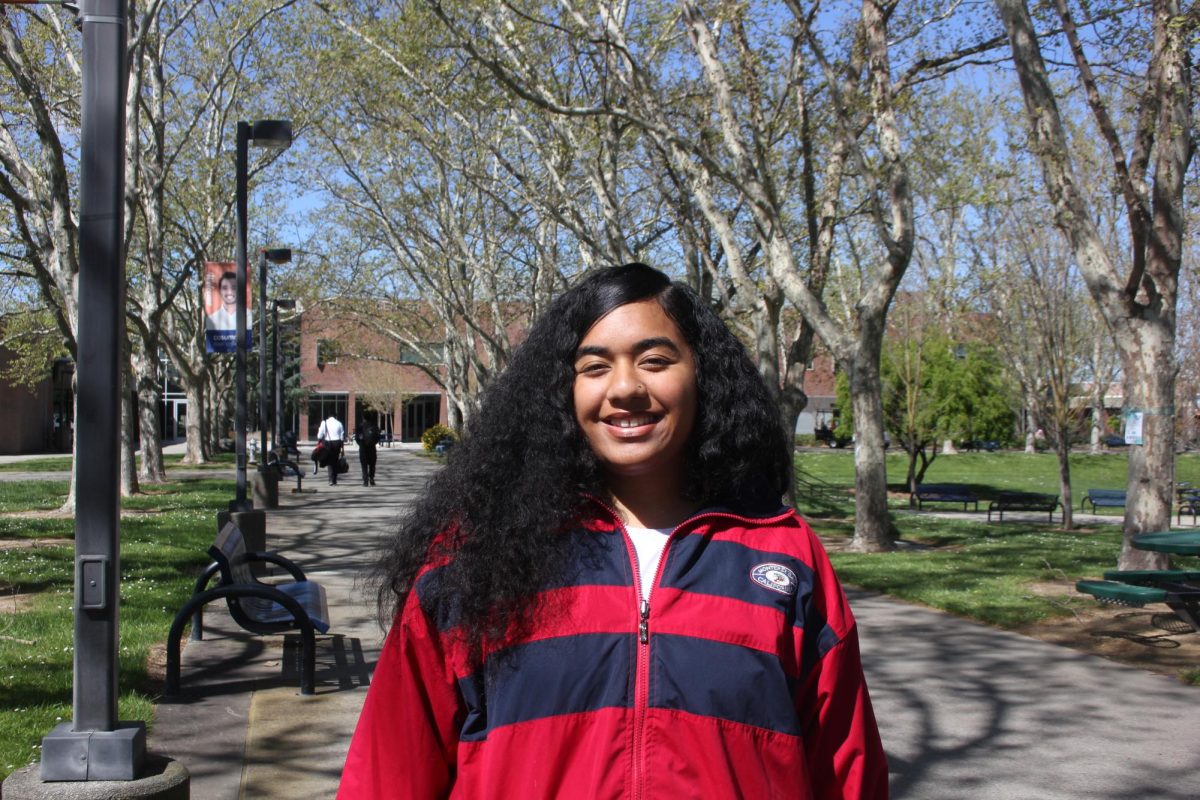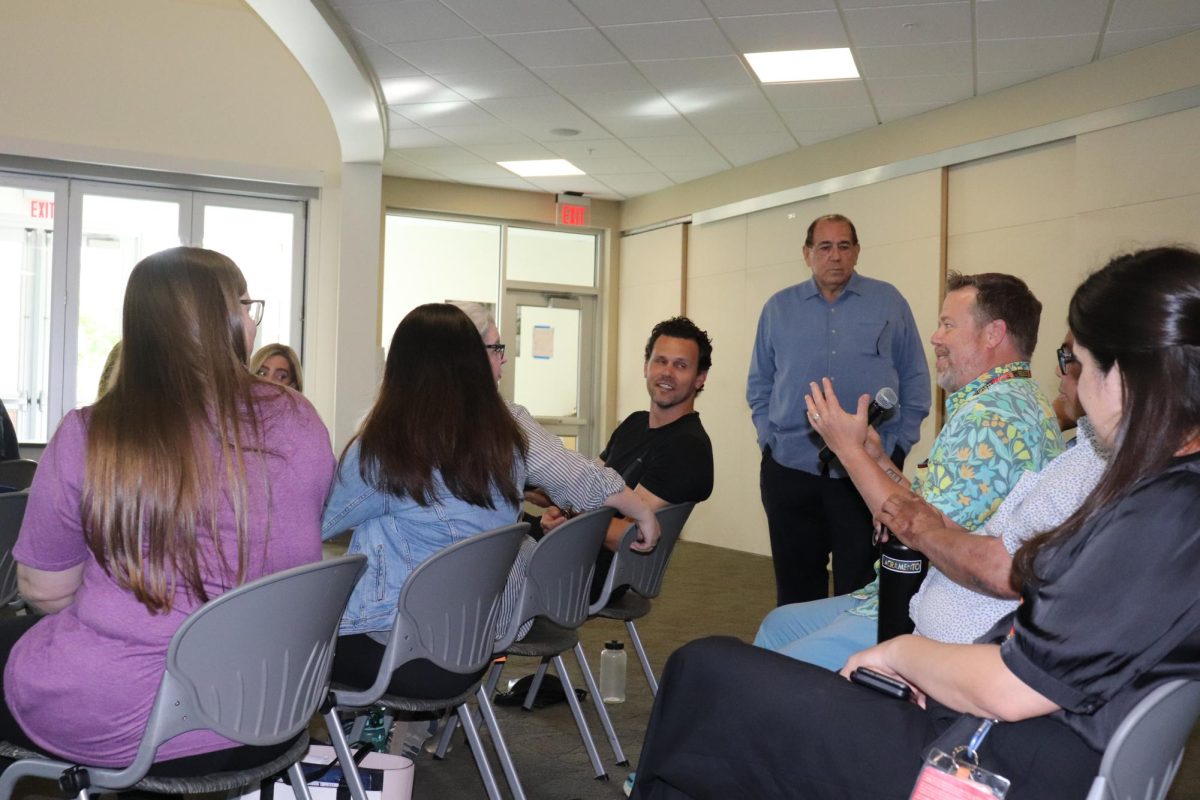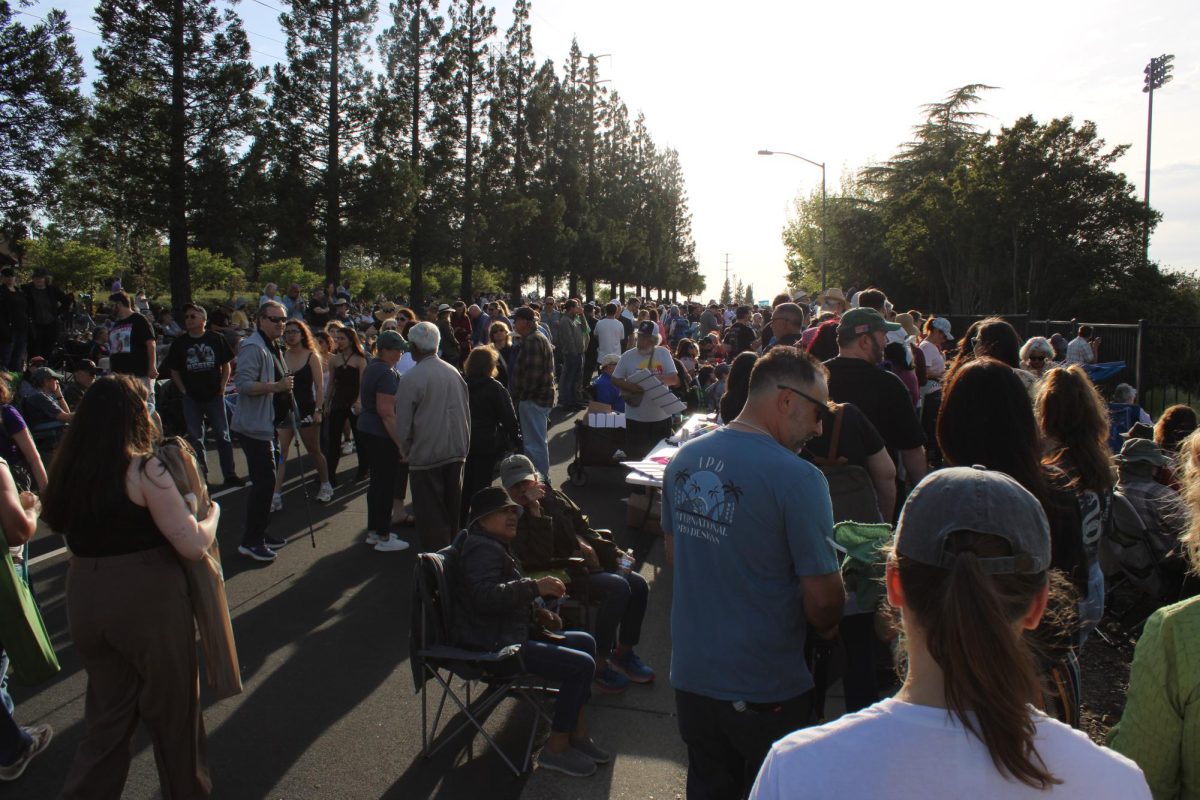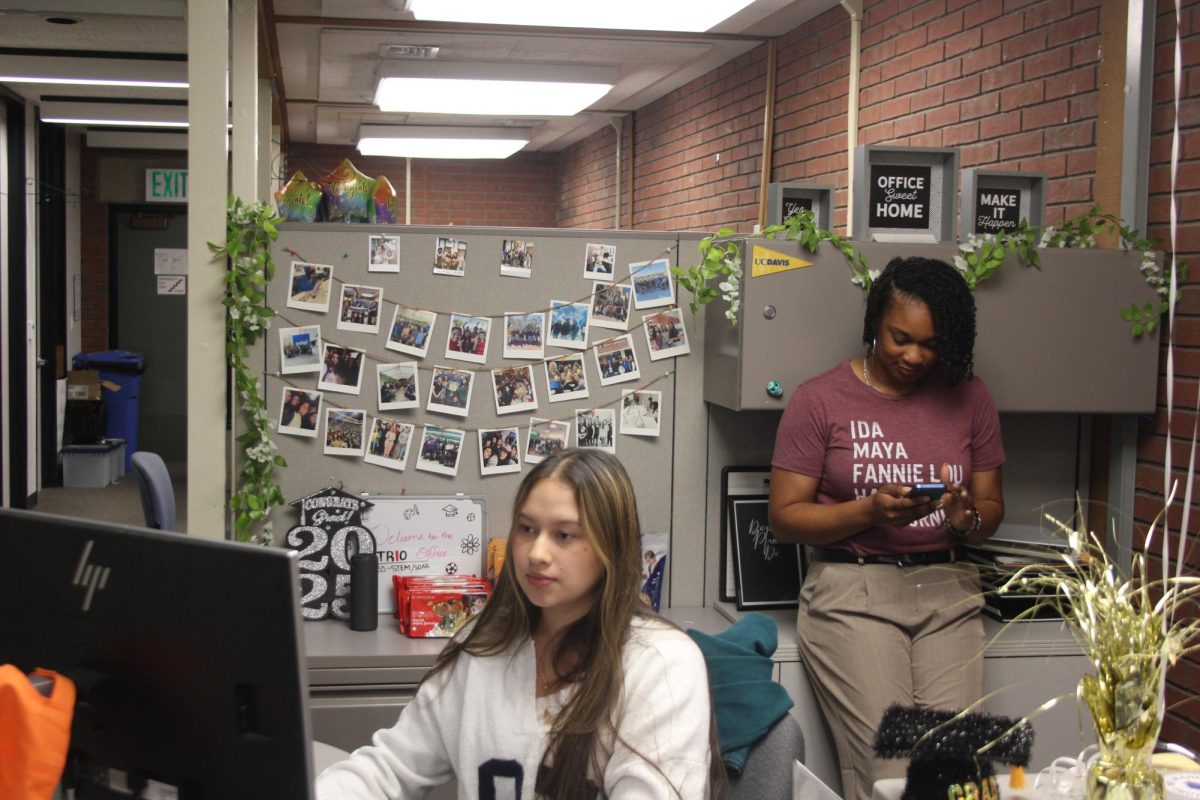A good night’s sleep on the chopping block amidst the stress of a college life
January 23, 2014
The hardest part of 19-year-old Michelle Bueso’s day is waking up in the morning. After going through the seven alarms she has set up on her iPhone, she finally rolls out of bed and heads straight to the kitchen to make her first pot of coffee of the day.
Eyes heavy and mind foggy, Bueso still can’t get used to the lack of sleep she encounters from being a full-time student at Cosumnes River College while balancing two jobs on the side, as she struggles to pay for her college tuition for semesters ahead.
Majoring in kinesiology, Bueso sacrifices her sleep and her education to keep her two jobs by missing school days to work double shifts and returning home at late hours of the night.
“Just sheer college and the rigors of academia, in trying to stay current with all of your classes and maintain a life at the same time is hard,” said Michelle Barkley, CRC’s head nurse. “The added responsibilities and expectations of a college student are compounded by whether or not you get enough sleep.”
A study by the National College Health Assessment in 2007 showed that 23.1 percent of community college students reported that difficulty sleeping was the second highest factor affecting their academic performance, with 30.6 percent of students reporting stress as the number one factor.
Bueso, along with many other college students, tries to compensate for her lack of sleep by filling up her Starbucks thermos full of coffee four times a day.
“I will go out of my way to get coffee if it’s not available to me,” Bueso said. “I find that every semester, my amount of espresso shots in my lattes just keeps increasing.”
Student’s addiction to not only coffee, but energy drinks as well, is extremely dangerous for their health and can lead to anxiety, seizures and even drugs to try to make up for lost sleep, Barkley said.
“Drinking energy drinks to try to compensate for that very basic, fundamental need to sleep is just so dangerous,” Barkley said. “It’s artificially changing your body’s natural chemistry.”
Bobbie Bray, a 20-year-old business major, said she drinks a substantial amount of coffee to make up for her sleep deprivation.
“I think that the amount of caffeine I have consumed has caused my adrenaline glands to be overactive, so I’m trying to cut back and eventually eliminate it,” Bray said.
One night of not sleeping when students have school the next day is equivalent to being drunk, Barkley said.
“You go through the day and the biggest thing is the inability to focus during your classes and be coherent,” Barkley said. “You’re definitely tired and your reflexes aren’t as sharp, so driving is also definitely dangerous.”
Bray explained some of the negative effects that sleep deprivation has on her as she goes through her day.
“Sometimes I wake up late and I miss class,” Bray said. “I’m always tired and my sleep schedule is screwed up, so I feel like I can never catch up on sleep.”
Barkley said she gets a substantial amount of students coming to her office for lack of sleep during midterms and a week before finals.
“A lot of students don’t take care of themselves during finals, and you can definitely tell when somebody is sleep deprived,” Barkley said. “You can see it in their eyes, that’s the biggest thing, and they look disheveled.”
Bueso said that it’s unfortunate how hard college students have to work just to get an education to support themselves.
“I know that it’s bad for my health to not get the right amount of sleep,” Bueso said. “But I’m willing to sacrifice my health for my education, and that’s sad.”





